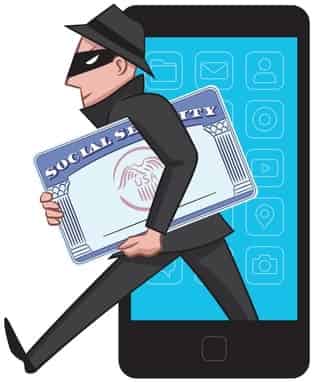Best Personal Loans for Bad Credit 2020


BadCreditLoans
$1,000 – $10,000
Min Credit Score: 0
APR: 5.99% - 35.99%
3 - 36 month
Time to Fund: 1 Day
Apply NowCashUSA
$1,000 – $10,000
Min Credit Score: 0
APR: 5.99% - 35.99%
24 - 60 months
Time to Fund: 1 Day
Apply Now
Compare All Personal Loans at SuperMoney
$100 - $100,000
Min Credit Score: 0
APR: 3.99% - 35.99%
Apply NowDownload our complete list of all bad credit lenders 2020!
Download
LendingTree
$1,000 – $50,000
Min Credit Score: 500
APR: 3.99% - 35.99%
12 - 60 months
Time to Fund: 1 Day
Apply Now
LoanServiceUSA
$100 – $40,000
Min Credit Score: 0
APR: Vary
1 – 60 Months
Time to Fund: < 1 Day
Apply Now
QuickLoanPlace
$100 - $35,000
Min Credit Score: 0
APR: 5.99% - 35.99%
1 - 120 month
Time to Fund: 1 Day
Apply Now
AdvanceLoan
$100 - $35,000
Min Credit Score: 0
APR: 5.99% - 35.99%
1 - 120 month
Time to Fund: 1 Day
Apply Now
FastLoans
$100 - $35,000
Min Credit Score: 0
APR: 5.99% - 35.99%
1 - 120 month
Time to Fund: 1 Day
Apply Now
InstallmentLoanSOS
$100 - $2,500
Min Credit Score: 0
APR: 5.99% - 35.99%
1 - 120 month
Time to Fund: 1 Day
Apply Now
Compare All Personal Loans at Credible
$100 - $100,000
Min Credit Score: 0
APR: 3.99% - 35.99%
Apply Now
SignatureLoans
$1,000 – $35,000
Min Credit Score: 0
APR: 5.99% - 35.99%
2 - 5 Years
Time to Fund: 1 Day
Apply Now
Personal Loans
$1,000 – $35,000
Min Credit Score: 580
APR: 5.99% - 35.99%
36 - 72 month
Time to Fund: 1 Day
Apply NowBest Personal Loans for Fair Credit 2020


LendingTree
$1,000 – $50,000
Min Credit Score: 500
APR: 3.99% - 35.99%
12 - 60 months
Time to Fund: 1 Day
Apply Now
Personal Loans
$1,000 – $35,000
Min Credit Score: 580
APR: 5.99% - 35.99%
36 - 72 month
Time to Fund: 1 Day
Apply Now
BadCreditLoans
Up to: $5,000
Min Credit Score: 0
APR: 5.99% - 35.99%
3 - 36 month
Time to Fund: 1 Day
Apply NowCashUSA
$1,000 – $10,000
Min Credit Score: 0
APR: 5.99% - 35.99%
24 - 60 months
Time to Fund: 1 Day
Apply Now
Compare All Personal Loans at SuperMoney
$100 - $100,000
Min Credit Score: 0
APR: 3.99% - 35.99%
Apply Now
Compare All Personal Loans at Credible
$100 - $100,000
Min Credit Score: 0
APR: 3.99% - 35.99%
Apply Now
LoanServiceUSA
$100 – $40,000
Min Credit Score: 0
APR: Vary
1 – 60 Months
Time to Fund: < 1 Day
Apply Now
Upgrade
$1,000 – $50,000
Min Credit Score: 600
APR: 7.99% - 35.97%
36 - 60 months
Time to Fund: 1 Day
Apply Now
Prosper
$2,000 - $40,000
Min Credit Score: 640
APR: 7.95% – 35.99%
36 - 60 months
Time to Fund: 1 - 3 Days
Apply Now
PayOff
$5,000 – $35,000
Min Credit Score: 640
APR: 5.99% – 24.99%
24 - 60 months
Time to Fund: 1 - 7 Days
Apply Now
SignatureLoans
$1,000 – $35,000
Min Credit Score: 0
APR: 5.99% - 35.99%
2 - 5 Years
Time to Fund: 1 Day
Apply Now
QuickLoanPlace
$100 - $35,000
Min Credit Score: 0
APR: 5.99% - 35.99%
1 - 120 month
Time to Fund: 1 Day
Apply Now
AdvanceLoan
$100 - $35,000
Min Credit Score: 0
APR: 5.99% - 35.99%
1 - 120 month
Time to Fund: 1 Day
Apply Now
FastLoans
$100 - $35,000
Min Credit Score: 0
APR: 5.99% - 35.99%
1 - 120 month
Time to Fund: 1 Day
Apply Now
InstallmentLoanSOS
$100 - $2,500
Min Credit Score: 0
APR: 5.99% - 35.99%
1 - 120 month
Time to Fund: 1 Day
Apply NowBest Personal Loans for Good Credit 2020


Compare All Personal Loans at SuperMoney
$100 - $100,000
Min Credit Score: 0
APR: 3.99% - 35.99%
Apply Now
Compare All Personal Loans at Credible
$100 - $100,000
Min Credit Score: 0
APR: 3.99% - 35.99%
Apply Now
LendingTree
$1,000 – $50,000
Min Credit Score: 500
APR: 3.99% - 35.99%
12 - 60 months
Time to Fund: 1 Day
Apply Now
Personal Loans
$1,000 – $35,000
Min Credit Score: 580
APR: 5.99% - 35.99%
36 - 72 month
Time to Fund: 1 Day
Apply Now
Upgrade
$1,000 – $50,000
Min Credit Score: 600
APR: 7.99% - 35.97%
36 - 60 months
Time to Fund: 1 Day
Apply Now
Prosper
$2,000 - $40,000
Min Credit Score: 640
APR: 7.95% – 35.99%
36 - 60 months
Time to Fund: 1 - 3 Days
Apply Now
PayOff
$5,000 – $35,000
Min Credit Score: 640
APR: 5.99% – 24.99%
24 - 60 months
Time to Fund: 1 - 7 Days
Apply Now
SignatureLoans
$1,000 – $35,000
Min Credit Score: 0
APR: 5.99% - 35.99%
2 - 5 Years
Time to Fund: 1 Day
Apply Now
SoFi
$5,000 - $100,000
Min Credit Score: 680
APR: 5.99% - 16.19%
24 - 84 months
Time to Fund: 1 - 7 Days
Apply Now
LaurelRoad
$1,000 - $45,000
Min Credit Score: 660
APR: 8.01% - 22.56%
36 - 60 months
Time to Fund: 1 - 5 Days
Apply Now
Discover
$2,500 - $35,000
Min Credit Score: 660
APR: 6.99% - 24.99%
36 - 84 month
Time to Fund: 1 - 7 Days
Apply NowFreedom Plus
$7,500 - $40,000
Min Credit Score: 620
APR: 7.99% - 29.99%
24 - 60 months
Time to Fund: 1 - 3 Days
Apply NowBest Debt Consolidation Loans 2020


Compare All Debt Consolidation Loans at SuperMoney
$100 - $100,000
Min Credit Score: 0
APR: 3.99% - 35.99%
Apply Now
Compare All Debt Consolidation Loans at Credible
$100 - $100,000
Min Credit Score: 0
APR: 3.99% - 35.99%
Apply Now
PayOff
$5,000 – $35,000
Min Credit Score: 640
APR: 5.99% – 24.99%
24 - 60 months
Time to Fund: 1 - 7 Days
Apply Now
Upgrade
$1,000 – $50,000
Min Credit Score: 600
APR: 7.99% - 35.97%
36 - 60 months
Time to Fund: 1 Day
Apply Now
LoanServiceUSA
$100 – $40,000
Min Credit Score: 0
APR: Vary
1 – 60 Months
Time to Fund: < 1 Day
Apply Now
LendingTree
$1,000 – $50,000
Min Credit Score: 500
APR: 3.99% - 35.99%
12 - 60 months
Time to Fund: 1 Day
Apply Now
Personal Loans
$1,000 – $35,000
Min Credit Score: 580
APR: 5.99% - 35.99%
36 - 72 month
Time to Fund: 1 Day
Apply Now
Prosper
$2,000 - $40,000
Min Credit Score: 640
APR: 7.95% – 35.99%
36 - 60 months
Time to Fund: 1 - 3 Days
Apply Now
SignatureLoans
$1,000 – $35,000
Min Credit Score: 0
APR: 5.99% - 35.99%
2 - 5 Years
Time to Fund: 1 Day
Apply Now
SoFi
$5,000 - $100,000
Min Credit Score: 680
APR: 5.99% - 16.19%
24 - 84 months
Time to Fund: 1 - 7 Days
Apply Now
LaurelRoad
$1,000 - $45,000
Min Credit Score: 660
APR: 8.01% - 22.56%
36 - 60 months
Time to Fund: 1 - 5 Days
Apply Now
Discover
$2,500 - $35,000
Min Credit Score: 660
APR: 6.99% - 24.99%
36 - 84 month
Time to Fund: 1 - 7 Days
Apply NowFreedom Plus
$7,500 - $40,000
Min Credit Score: 620
APR: 7.99% - 29.99%
24 - 60 months
Time to Fund: 1 - 3 Days
Apply NowBest Auto Loans 2020

Best Mortgage Loans 2020

Best Student Loans 2020


Refinance Your Student Loan with Credible
Compare all student loans at one place.
Credible will pay you $200 if you find a better rate somewhere else!
As low as 1.29%
Apply Now
Credible Private Student Loans
Compare all private student loans at one place.
Credible will pay you $200 if you find a better rate somewhere else!
As low as 1.29%
Apply Now
Sallie Mae
Fixed APR: 4.25 - 12.35%
Variable APR: 1.25 - 11.15%
Min. Credit Score: Does not disclose
Apply Now
College Ave Student Loans
Fixed APR: 3.99 - 12.99%
Variable APR: 1.24 - 11.98%
Min. Credit Score: Mid-600s
Apply Now
Sofi
Fixed APR: 4.11 - 11.83%
Variable APR: 1.78 - 11.73%
Min. Credit Score: Does not disclose
Apply Now
Discover Student Loans
Fixed APR: 4.84 - 12.39%
Variable APR: 1.59 - 10.99%
Min. Credit Score: Does not disclose
Apply Now
Citizens One
Fixed APR: 4.25 - 11.53%
Variable APR: 1.25 - 11.01%
Min. Credit Score: Does not disclose
Apply NowBest Business Loans 2020

Best Loans By State 2020

 Best Loans is Alaska
Best Loans is Alaska  Best Loans is Arizona
Best Loans is Arizona  Best Loans is Arkansas
Best Loans is Arkansas  Best Loans is California
Best Loans is California  Best Loans is Colorado
Best Loans is Colorado  Best Loans is Connecticut
Best Loans is Connecticut  Best Loans is Delaware
Best Loans is Delaware  Best Loans is Florida
Best Loans is Florida  Best Loans is Georgia
Best Loans is Georgia  Best Loans is Hawaii
Best Loans is Hawaii  Best Loans is Idaho
Best Loans is Idaho  Best Loans is Illinois
Best Loans is Illinois  Best Loans is Indiana
Best Loans is Indiana  Best Loans is Iowa
Best Loans is Iowa  Best Loans is Kansas
Best Loans is Kansas  Best Loans is Kentucky
Best Loans is Kentucky  Best Loans is Maine
Best Loans is Maine  Best Loans is Maryland
Best Loans is Maryland  Best Loans is Massachusetts
Best Loans is Massachusetts  Best Loans is Minnesota
Best Loans is Minnesota  Best Loans is Missouri
Best Loans is Missouri  Best Loans is Michigan
Best Loans is Michigan  Best Loans is Mississippi
Best Loans is Mississippi  Best Loans is Montana
Best Loans is Montana  Best Loans is Louisiana
Best Loans is Louisiana  Best Loans is Nebraska
Best Loans is Nebraska  Best Loans is Nevada
Best Loans is Nevada  Best Loans is New Hampshire
Best Loans is New Hampshire  Best Loans is New Jersey
Best Loans is New Jersey  Best Loans is New York
Best Loans is New York  Best Loans is New Mexico
Best Loans is New Mexico  Best Loans is North Dakota
Best Loans is North Dakota  Best Loans is North Carolina
Best Loans is North Carolina  Best Loans is Ohio
Best Loans is Ohio  Best Loans is Oklahoma
Best Loans is Oklahoma  Best Loans is Oregon
Best Loans is Oregon  Best Loans is Pennsylvania
Best Loans is Pennsylvania  Best Loans is Rhode Island
Best Loans is Rhode Island  Best Loans is South Carolina
Best Loans is South Carolina  Best Loans is South Dakota
Best Loans is South Dakota  Best Loans is Tennessee
Best Loans is Tennessee  Best Loans is Texas
Best Loans is Texas  Best Loans is Utah
Best Loans is Utah  Best Loans is Vermont
Best Loans is Vermont  Best Loans is Virginia
Best Loans is Virginia  Best Loans is Washington
Best Loans is Washington  Best Loans is Wisconsin
Best Loans is Wisconsin  Best Loans is West Virginia
Best Loans is West Virginia  Best Loans is Wyoming
Best Loans is Wyoming 








































































